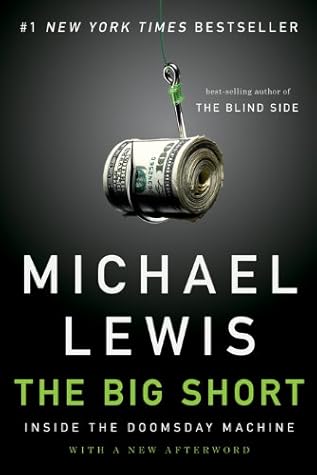More on this book
Community
Kindle Notes & Highlights
Read between
October 12 - December 31, 2021
You’re wrong. Your data’s wrong. And he just hollered back at them, ‘It’s YOUR fucking data!’”
When a Wall Street firm helped him to get into a trade that seemed perfect in every way, he asked the salesman, “I appreciate this, but I just want to know one thing: How are you going to fuck me?” Heh-heh-heh, c’mon, we’d never do that, the trader started to say, but Danny, though perfectly polite, was insistent. We both know that unadulterated good things like this trade don’t just happen between little hedge funds and big Wall Street firms. I’ll do it, but only after you explain to me how you are going to fuck me. And the salesman explained how he was going to fuck him.
Don’t make loans to people who can’t repay them.
Instead it learned a complicated one: You can keep on making these loans, just don’t keep them on your books. Make the loans, then sell them off to the fixed income departments of big Wall Street investment banks, which will in turn package them into bonds and sell them to investors.
“The fixed income world dwarfs the equity world,” he said. “The equity world is like a fucking zit compared to the bond market.”
In most cases—Dick Fuld at Lehman Brothers, John Mack at Morgan Stanley, Jimmy Cayne at Bear Stearns—the CEO was a former bond guy.
“The people who have the gold make the rules.”
“The Psychology of Human Misjudgment.”
“They all said the same thing,” said one of the traders present. “They’d go back to historical real estate prices over sixty years and say they had never fallen nationally, all at once.” (Two months after their meeting with Goldman Sachs, one of the AIG FP traders bumped into the Goldman guy who had made this argument and who now said, Between you and me, you’re right. These things are going to blow up.)
In Bakersfield, California, a Mexican strawberry picker with an income of $14,000 and no English was lent every penny he needed to buy a house for $724,000.
You Can Be a Stock Market Genius,
Black-Scholes models
“Whatever that guy is buying, I want to short it.”
His experience with Household Finance had disabused him of any hope that the government would intercede to prevent rich corporations from doing bad things to poor people. Inside the free market, however, there might be some authority capable of checking its excess. The rating agencies, in theory, were just such an authority.
“We were like, ‘You don’t have to re-rate all of them. Just the ones we’re short,’” said Charlie. “They were like, ‘Hmmmmmm…no.’”
And Eisman just laughed at him. “With all due respect, sir,” said Vinny deferentially, as they left, “you’re delusional.”
Goldman Sachs was the big kid who ran the games in this neighborhood. Merrill Lynch was the little fat kid assigned the least pleasant roles, just happy to be a part of things.
“He had apparently scored very low on tests involving art and scissor use,” said Burry. “Big deal, I thought. I still draw like a four-year-old, and I hate art.”
“One of the oldest adages in investing is that if you’re reading about it in the paper, it’s too late,”
Across Wall Street, subprime mortgage bond traders were long and wrong, and scrambling to sell their positions—or to buy insurance on them.
By edict of CEO Jamie Dimon, J.P. Morgan had abandoned the market by the late fall of 2006. Deutsche Bank, because of Lippmann, had always held on tenuously. Goldman Sachs was next, and did not merely let go, but turned and made a big bet against the subprime market—further accelerating the balloon’s fatal ascent.


